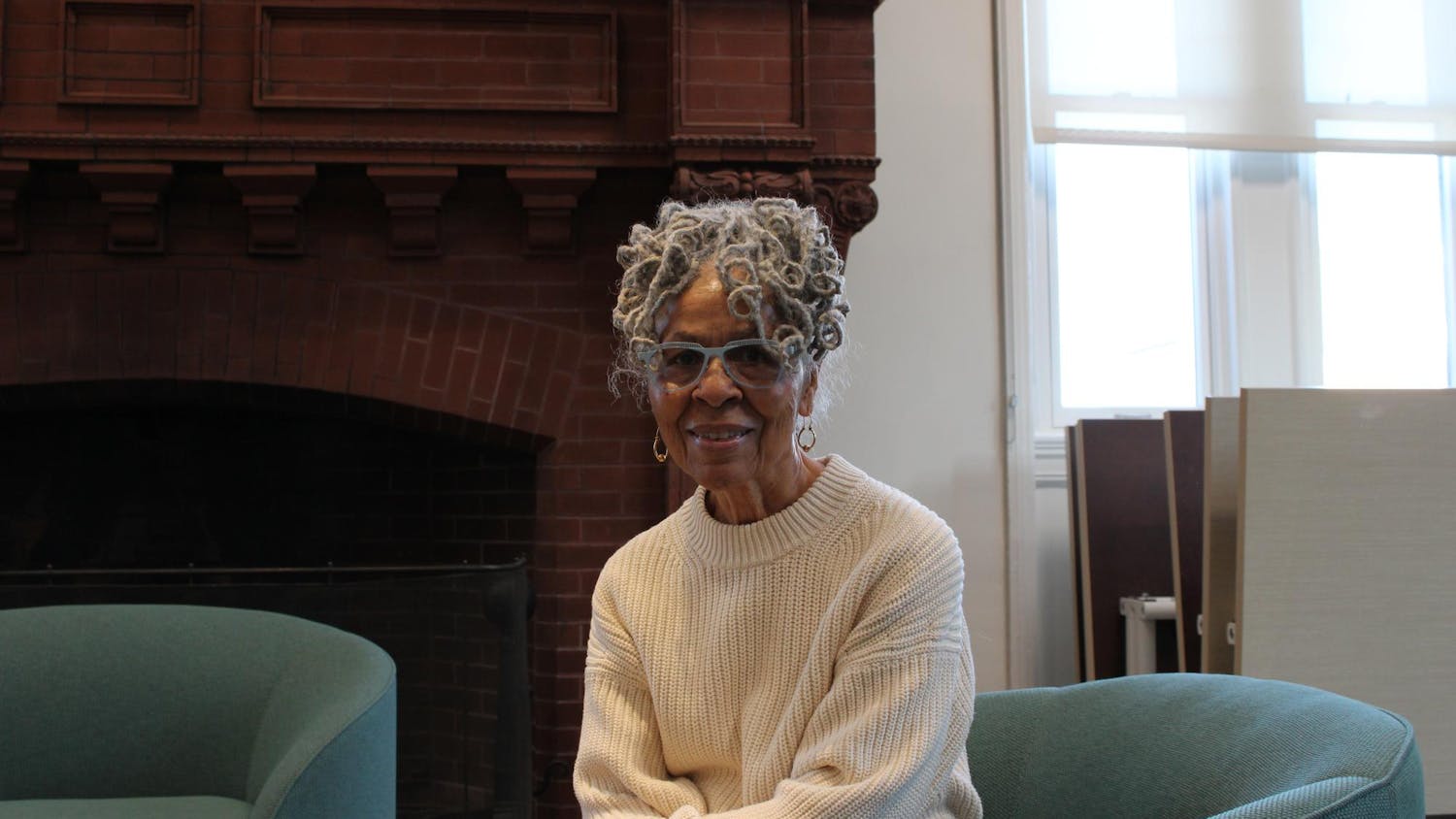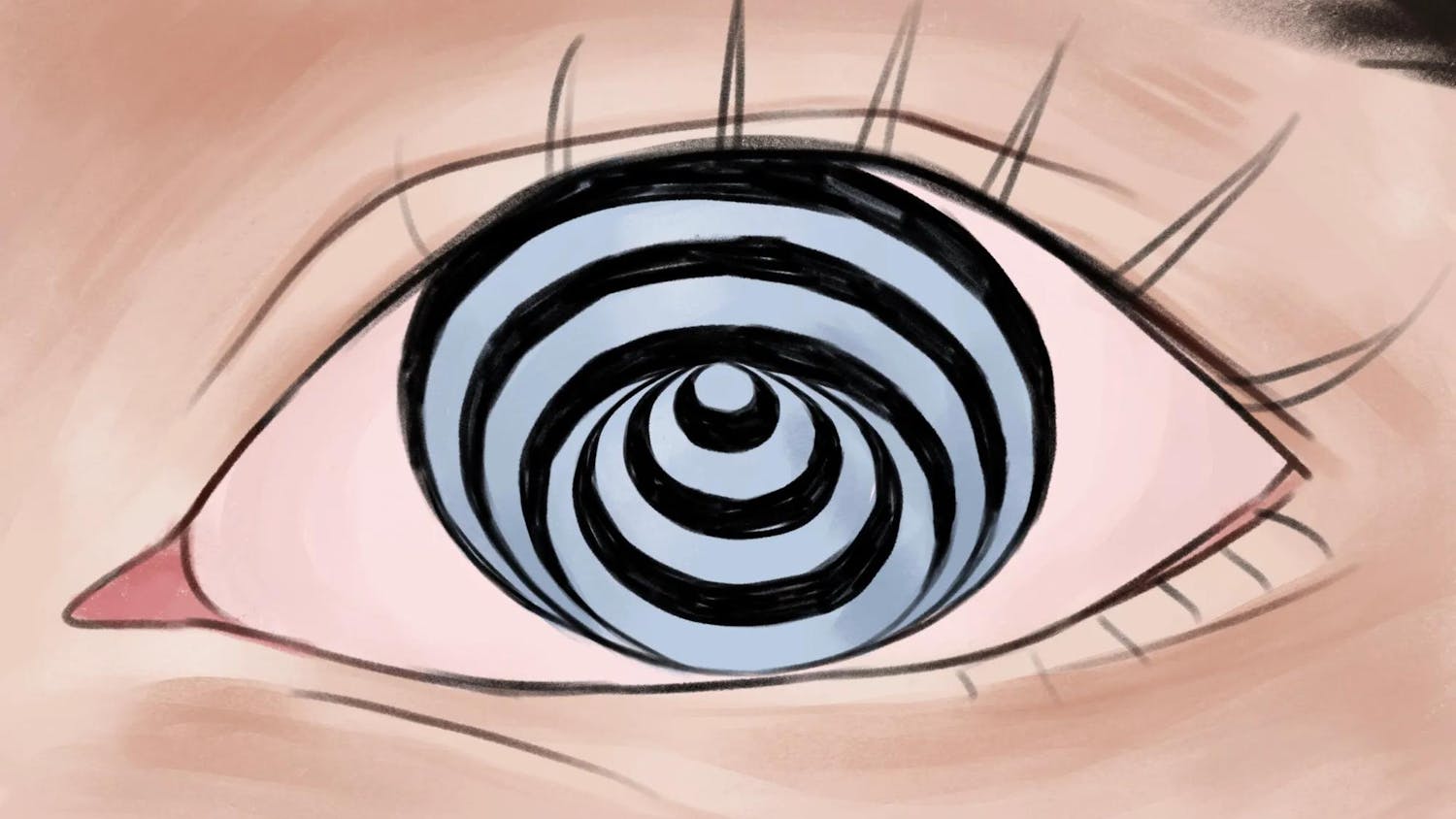Talk of cyclones, community gardens and the Seekonk River punctuated the conversation in the Undergraduate Environmental Lab Thursday as students and faculty congregated around colorful posters detailing students' summer research projects funded by the Center for Environmental Studies. Nine students who received the grants - worth up to $3,000 - explained their research and findings to colleagues, professors and passersby.
The center awards summer research grants each year, giving recipients - approximately half undergraduates and half graduates - the chance to apply what they have learned academically to real-world arenas that captivate their interest, said Dawn King, visiting assistant professor for environmental studies.
The center hosts an open house for the students who received the grants every fall, said J. Timmons Roberts, professor of environmental studies and sociology. Student grant recipients depict their work on a poster and explain their experiences verbally, allowing "people to learn more about more projects," Roberts said.
The students' summer projects, while all related to environmental issues, represented a broad swath of interests.
Chelsea Parker GS spent the summer running model simulations of Yasi, an intense cyclone that hit the coastline of Queensland, Australia, in February 2011. Parker manipulated variables such as ocean surface temperature, atmospheric pressure and wind speed to determine ideal cyclone environments and predict the future of cyclone activity in the area. Parker traveled to Queensland to meet with local scientists, who helped verify the accuracy of her model.
While abroad, she also attended a coral reef conference and initiated a collaboration with the Great Barrier Reef Marine Park Authority. Parker and the Park Authority combined forces - sharing collected ground data and simulation results to "build a bigger picture" of the future of the Great Barrier Reef ecosystem, Parker said.
Hannah Ross GS decided to stay local. She studied the traditional agricultural practices of the Hmong, a Liberian and Burundian refugee group with a strong presence in Providence. Ross engaged in "participant observation," farming side by side with the Hmong at local farms and community gardens.
"My roommate loves it - our fridge is always full of vegetables," Ross said.
Ross also conducted oral history interviews, focusing on traditional agricultural practices and how the Hmong are adapting those practices in Rhode Island.
"I found the people to be incredibly welcoming and warm and generous with their time," Ross said. "I felt weird about imposing myself on them, but they were always willing to show me what they were doing," she said.
Ross, who wants to be a farmer, is now consolidating her experience into a master's thesis. She said she is looking forward to making soybean tofu with a Hmong woman she worked with in the coming weeks.
Myriad other projects demonstrate the far-reaching effects of students' summer research. Brianna Craft GS traveled to Bonn, Germany, to intern with the United Nations Framework Convention on Climate Change, working extensively with the Least Developed Countries bloc.
Laura McLellan '12.5, a former Herald copy editor, focused her efforts on conservation of the local Seekonk River. McLellan conducted interviews with local environmental leaders and developed a survey to identify a "shared vision" and "highlight common ground" for conservation of the sewage-polluted river.
Hydraulic fracking - a technique that employs water pressure to release natural gas from underground shale - took center stage in the research of Rebecca Keane GS, who spent the summer in northern and western Pennsylvania. Keane interviewed farmers to determine fracking's impact on sustainable agriculture, "filling a hole" in academic research in the area, she said. Keane said she hopes her master's thesis on the topic will aid farmers in making more informed decisions about leasing land to natural gas companies.
"The process made me reflect on the work I've done and the themes I see emerging in my work," Ross said. "Before, it was all just a jumbled mess in my brain."




